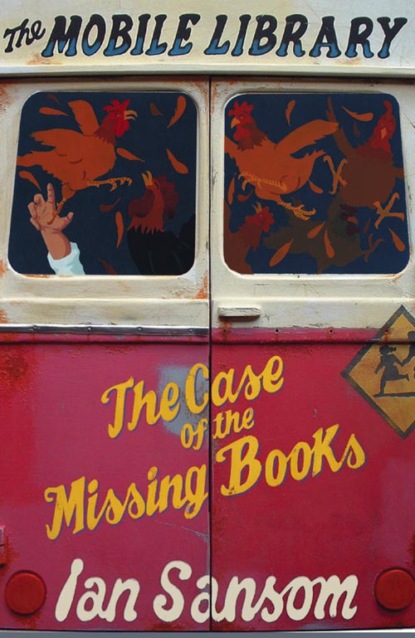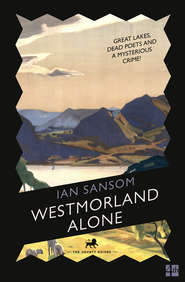По всем вопросам обращайтесь на: info@litportal.ru
(©) 2003-2024.
✖
The Case of the Missing Books
Автор
Год написания книги
2019
Настройки чтения
Размер шрифта
Высота строк
Поля
‘Right.’
‘You’re going to love it! You’re going to be staying with George up country. It’s lovely! And if you just get yourself down to Ted he’ll sort you out with the mobile library—’
‘Ted?’
‘Ted Carson. You’ll love Ted! He’s going to be showing you round. He has his own wee cab company there in town. You know, you’re going to love it here, Mr Armstrong. I really think you’re going to fit right in.’
3 (#ulink_305c5df0-f52a-5cd9-82e0-4fecd53d75a5)
He was not fitting right in. In fact, on the contrary. In fact, to be honest, to be absolutely, perfectly honest – and he wouldn’t have wanted to have offended anyone by saying this, particularly his long-dead father, but still, the truth hurts and sometimes it’s important to speak one’s mind, if only to oneself and to the familiar dead, who can take it – to be absolutely frankly, brutally honest, Israel had taken an immediate, huge and intense dislike both to the people and to the place of Ireland in general, to Northern Ireland in particular, and to Tumdrum, County Antrim in very particular. And he was getting to dislike it more and more all the time.
Back at the council offices Linda Wei had got him to sign several forms on the dotted line, and had issued him with papers and instructions as to his exact role and responsibilities, and details of bank accounts had been confirmed, and then it had taken him an hour – a whole hour – to find Ted’s Cabs following Linda’s directions, wandering up and down the endless grey-black streets of Tumdrum, which meant that in total he’d been on his vast trek now from London to here for nearly two days – two whole days – and when he finally made it to the so-called offices of Ted’s Cabs, it turned out to be nothing more than a large shiplap and corrugated-iron shed on a patch of weedy waste ground next to a barbed-wired electricity sub-station on the edge of Tumdrum. There was a red neon sign attached to the roof of the shed, flashing TED’S CABS into the cold Northern Irish sky, and as he got closer Israel could see a faded motto painted on hardboard in a wobbly hand which hung on chains down and across the front of the shed, and which was banging forcefully in the high winter winds: IF YOU WANT TO GET THERE, announced the flapping sign, CALL THE BEAR.
He could feel another of his headaches coming on. He could have done with a chunky KitKat.
He swallowed his absolutely last Nurofen and stepped up to the shed, to a window that had an orange numberplate with the word TAXIS spelt out on it and a large arrow pointing down, and he tapped on the glass – which wasn’t glass, in fact, but a thick, scarred plastic, and which slid back instantly, which made Israel gasp, not something he was much given to do; his life up until now had never given him much cause for gasping, which was pretty much how he liked it, and he nearly choked on his headache tablet.
The opening revealed a metal grille, and a man sitting up close to the window, his huge meaty face filling the space.
‘Aye?’ said the man, not looking at Israel.
‘Hello,’ said Israel, as cheerily as possibly, after his near death by Nurofen. ‘I’m looking for Ted Carson.’
‘Aye?’ said the man again. He was busy watching a television mounted high on a wall bracket in the opposite corner of the shed.
‘My name’s Israel Armstrong. I’m the new librarian. Linda Wei up at the council offices said I could call in here and Ted would be able to—’
‘Aye. Well,’ said the man inside, turning an eye from the TV for a moment and looking at Israel. ‘It’s you, is it?’
‘Yes—’ began Israel.
The man got up from his seat and gestured for Israel to move over to the door of the shed, which Israel dutifully did, and there was the sound of the sliding of bolts and the unlocking of locks and then the door opened and the man beckoned Israel inside.
‘Come on!’ he commanded. ‘If you’re coming.’ Israel stepped inside and the man locked the door behind him. ‘You can’t be too careful these days.’
‘No. Quite,’ said Israel, putting down his old brown case, turning down the hood on his duffle coat, and taking off his glasses to wipe the mist and condensation from them.
‘Blinkin’ head-bangers, they’d have the paint off the walls.’
Israel glanced around, but there didn’t actually seem to be that much in the shed for blinkin’ head-bangers to steal: a table, the chair, a Calor Gas heater, and the TV. There was no paint on the walls.
‘We’ve been burnt out twice,’ said the man.
‘Oh dear,’ said Israel. ‘That’s terrible.’
‘You’re right,’ said Ted, looking Israel up and down, sceptically. ‘So, they got one in the end, then.’
‘Sorry?’
‘A librarian. You’re supposed to be the new librarian?’
‘I am the new librarian,’ said Israel, with some force and certainty, although to be honest he was no longer entirely convinced himself. He no longer felt much like a librarian: he felt more like someone having reached the edge of the world and himself, a bit like Scott on his last expedition to the Antarctic, perhaps, or Robinson Crusoe on his desert island.
As the man stared at Israel, sizing him up, so Israel did his weary best to stare back.
The man saw Israel – the duffle coat, the glasses, the case, the podge, the suit, the messy mop of hair – and Israel saw a man in hearty good health, maybe early sixties, with a shaven head and wearing so many different layers of clothing that it was difficult to tell where his natural thick-settedness ended and mere padding began. His bulk and his distinctly lived-in, or rather, punched-in appearance – he looked as though someone had at some time secured his fat head in a vice and hit him hard with a flat-iron – suggested that he wouldn’t stand any nonsense. You wouldn’t mind him driving your cab, but you wouldn’t want to have to argue over the fare. Israel strongly suspected tattoos.
‘You were supposed to be here earlier,’ said the man.
‘Yes. Sorry. I got held up.’
‘Aye. Right. But you’re here now and you’re wanting the van and dropped off?’
‘Er. Yes,’ said Israel. ‘Linda Wei said someone here would be so kind as to—’
‘Aye. Linda…’
‘Is that OK?’
‘Well,’ said the man, turning away and beginning to flick delicately through a large black ledger on the desk by the grille. ‘I suppose it’d better be.’
‘Right. Erm. Well, if not, I’m sure I can always find someone else to take me.’
‘Aye.’ The man laughed – just once. ‘You could try. And you might know different, but to my knowledge I’m the only minicab company between here and Rathkeltair.’
‘Uh-huh,’ said Israel, suitably chastened. ‘So you’re actually Ted Carson himself?’
‘That I am.’
‘Pleased to meet you,’ said Israel, extending his hand.
‘Aye,’ said Ted, shaking Israel’s hand absentmindedly, and almost crushing it, and continuing to examine the ledger. ‘Fortunately for you, as it happens I do have a car and a driver free.’
‘Good.’ Israel waved his hand to restore his circulation; it was a hell of a handshake. ‘Good. Is it…Er. The mobile library. And where I’m staying. Are they – is it – far?’
‘Within an ass’s roar,’ said Ted, ‘and at the back of God speed.’
‘Right,’ said Israel.
Oh, God.
The driver that Ted had free was in fact Ted himself, and the car was an old Austin Allegro with a large illuminated orange plastic bear stuck on the roof – ‘Ted, bear, d’you see?’ said Ted. ‘It’s advertising,’ and ‘Yes,’ said Israel, trying to sound enthusiastic, ‘very good’ – and Ted drove Israel far out of Tumdrum, out along the coast, along narrow country roads between high hawthorn hedges, with grey and white farms dotting the landscape, and hills and mountains looming, and the sea shimmering in the distance, but Israel was too tired and too fed up to be bothered about the view.
‘Mind if I smoke?’ said Ted.
‘Not at all,’ said Israel, although he did mind actually, but he couldn’t say he did because he was a liberal and so instead he just slumped further down in his seat, huddled in his duffle coat and his corduroy trousers, looking at all the green and the grey outside, and feeling profoundly sorry for himself. Ted turned the heating up to full. The car felt like a pressure cooker.
‘You know you’ve come on one of the busiest days of the year?’ said Ted.











